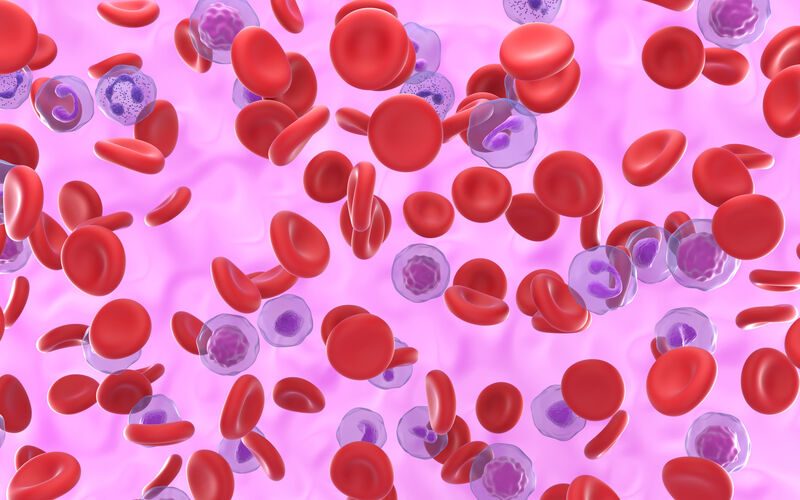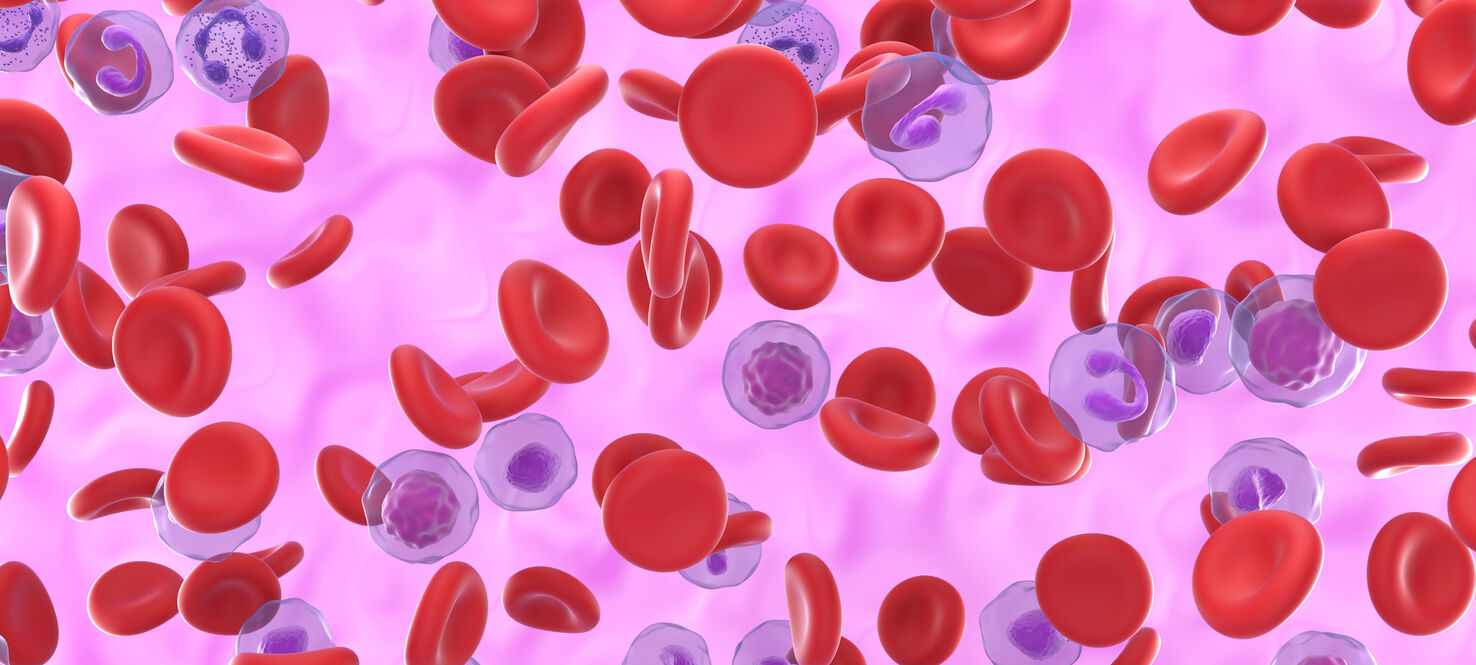New Drug Significantly Improves Outcomes for Patients with Polycythemia Vera
For people living with polycythemia vera, managing the disease often means rolling up their sleeves, literally, for the frequent removal of substantial amounts of blood that they overproduce. But a new treatment may soon offer a much-needed break from the needle and allow more consistent control of their red blood cell counts.
In a large international clinical trial, a weekly injectable drug called rusfertide helped patients with this rare blood cancer avoid problematic therapeutic phlebotomies, or blood draws, while keeping their red blood cell levels in check. The study, known as VERIFY, also found that patients on rusfertide reported feeling less fatigued, one of the most common and impactful symptoms of the disease. Findings from the phase 3 study were presented in the plenary session at the American Society of Clinical Oncology annual meeting.

Andrew Kuykendall, MD
Polycythemia vera, or PV, is a chronic condition that causes the bone marrow to produce too many red blood cells. This thickens the blood and raises the risk of serious complications like heart attacks and strokes. To lower that risk, patients often undergo regular phlebotomies to reduce their hematocrit or the percentage of red blood cells in the blood. While effective, the process can tie patients to the health care system, can be poorly tolerated and may worsen symptoms by depleting iron stores.
Rusfertide takes a different approach. It mimics hepcidin, a hormone that regulates iron in the body. By limiting the amount of iron available to the bone marrow, the drug helps slow the production of red blood cells. In the VERIFY trial, which included nearly 300 patients who needed frequent phlebotomies despite standard treatment, rusfertide was given once a week alongside usual care.
The results were striking. Nearly 77% of patients receiving rusfertide were able to maintain hematocrit control without needing additional blood draws compared to just 33% of those on the trial who were given a placebo. Patients also had fewer phlebotomies overall and were more likely to keep their hematocrit below the target threshold. Additionally, they reported meaningful improvements in fatigue and other symptoms.
“Fatigue is one of the most common and disruptive symptoms my patients face,” said Andrew Kuykendall, MD, the study’s lead investigator and a medical oncologist in the Malignant Hematology Department at Moffitt Cancer Center. “Even small improvements can make a big difference in their daily lives. Rusfertide offers a new way to help patients feel better while reducing the burden of treatment.”
Kuykendall says the drug was generally well tolerated. The most common side effects were mild injection site reactions that improved over time. Serious side effects were rare and occurred at similar rates in both the rusfertide and placebo groups.
Based on these findings, the drug’s developer, Protagonist Therapeutics, plans to seek regulatory approval in the U.S. and other countries. Long-term follow-up from the VERIFY study is ongoing to further evaluate the drug’s safety and effectiveness over time.




